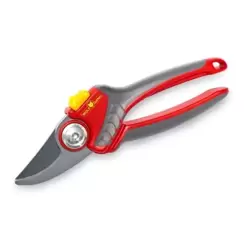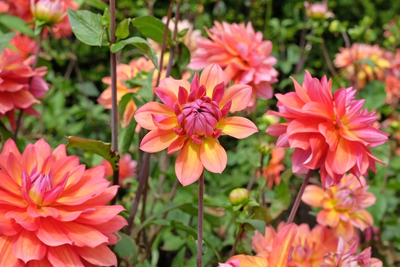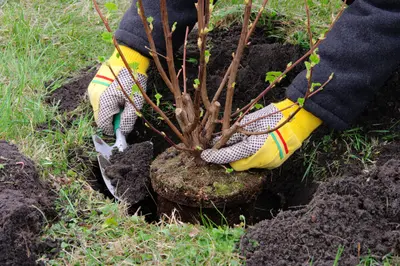
Pruning roses doesn’t have to be complicated. Simply follow a few basic principles, then sit back and enjoy the gorgeous blooms of your favourite roses this summer.
Tips on pruning roses
Pruning roses produce healthier, better-shaped plants, with more flowers and less risk of disease. So it’s well worth learning how to do it right. First of all, here are a few general tips on pruning roses:
- Always use sharp secateurs or loppers to ensure a clean cut.
- Start by cutting away all dead, damaged, crossing and spindly branches
- Cut stems just above an outward-facing bud, at a sloping angle to divert rainwater away from the bud.
- To limit the spread of diseases such as black spot, don’t compost rose leaves, but bag them and dispose of them.
- Finally, don’t worry if you accidentally cut too much off your rose. Roses are robust, and will generally grow back even after hard pruning.
Pruning hybrid tea and floribunda roses
Pruning techniques for bush roses like hybrid teas and floribundas vary slightly, depending on the type of rose.
Hybrid tea roses have a single flower per stem (think of the classic long-stemmed Valentine’s Day rose) and tend to flower in two or three separate flushes over summer and autumn. Floribunda roses bloom continuously from summer to autumn, bearing several flowers per stem.
The best time to prune both hybrid tea and floribunda roses is in late winter or early spring, just as the first growth is starting. As always, first remove all dead, damaged and crossing stems. Then, if you’re pruning a hybrid tea rose, cut stems back to 4-6 buds from their base. For floribunda roses, cut stems back by a third of their length.
Pruning climbing and rambling roses
To tell whether your rose is a climber or a rambler, look at how often it flowers. Climbing roses generally flower repeatedly through summer, whereas rambling roses bloom just once, in early summer. Prune both climbing and rambling roses in winter, first removing all dead, damaged and crossing growth, so that you’re left with a framework of main branches. Next, train in new shoots to fill any gaps in the framework.
If you’re pruning a climbing rose, the next step is to cut back side shoots (shoots growing off the main branches) to 4 healthy buds. If you’re training a climbing rose against a wall, cut back any shoots that are growing outwards from the wall.
When pruning a rambling rose, thin it by removing one in every three old stems, then shorten side shoots by two-thirds.
Roses are some of the most rewarding plants to grow, and in our range in the plant centre, there’s sure to be one to suit your garden. If you aren’t sure which one to choose, our friendly staff are always happy to help and advise.








